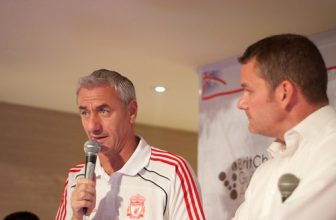

Academic High School (Vienna)
(Pictures you can see by clicking on the link at the end of page!)
Beethovenplatz
school form – general secondary school (high school humanistic)
Founded in 1553
♁ coordinates 48 ° 12 ‘5 " N, 16 ° 22 ‘ 34" OKoordinaten : 48 ° 12 ‘5 " N, 16 ° 22’ 34" E | |
Support public
About 610 students (4 April 2010)
About 60 teachers (4 April 2010)
Website www.akg -wien.at
The Academic Gymnasium in Vienna was founded in 1553 and is the oldest high school in Vienna. The school orientation is humanistic and compared with other traditional high schools of the city rather liberal. The current number of students is about 610 students, divided on 24 classes.
History
16th and 17th Century
At the time of the foundation of the high school, the University of Vienna had the privilege to decide about the estabilishment of educational institutions. In March of 1553, the Jesuits received permission from the university to the founding of the Academic Gymnasium.
The primary objectives of the exclusively Jesuit teaching corps was the provision of religious instruction, the practice of the Catholic faith and the strengthening of the religious attitude of the students. The Academic Gymnasium was located at the time of its inception in the Dominican monastery opposite the then university. The former language was Latin.
18th and 19 Century
The dissolution of the Jesuit order in 1773 by Pope Clement XIV led to a conversion of the teaching staff and educational goals. The new focus was on history, mathematics, German, literature and geography. The management of the school was transferred to the Piarist. Subsequently the school was somewhat cosmopolitan conducted and the spirit of the Enlightenment prevailed both among teachers and among the students. Likewise, new didactic and educational measures, and later the school fees were introduced.
As a result of high school reform in 1849, the eight-year school with the final matriculation examination was developed. The humanistic aspects crystallized out more and more, the focus of the lesson were mainly linguistic-historical, mathematical and scientific aspects not being neglected. The first high school graduates made their final exams at the end of the school year 1850 /51.
Academic High School before the vaulting of the Vienna River (Wienfluß – as small as possible)
Since 1866 the building of the Academic Gymnasium is located on Beethoven place in the first district of Vienna. It was built by Friedrich von Schmidt, who also designed the City Hall, in his typical neo-Gothic style.
The first students (female ones) gratuated in 1886 and 1887 (every year an external student), since the school year 1896/97 there were almost every year high school graduates, a general admission of girls there since 1949 /50.
20th Century
The years following the First World War were extremely distressing for the high school, because there was a very narrow escape for not being closed, the cause was a sharp decline in students. The educational institution was menaced from losing its good reputation and attractiveness.
GuentherZ 2007-02-22 2707 Wr Akad Gym plaque Jewish students and Lehrer.jpg
After the "Anschluss" of Austria in 1938, the Jewish students had to leave the school, they were 28 April 1938 transfered, some of the students but had logged off before this date. The total loss amounted to nearly 50 percent of the students because the school from all Viennese schools was attended most of all of children of Jewish families. Today, several plaques remember on the outer facade of the high school the transfer and the horrors of Nazism. A known victim of that action was the future Nobel laureate Walter Kohn, he had to leave school in the 5th class.
Wolfgang Wolfring (1925-2001) popularized the high school from 1960 as the site of classical Greek drama performances in ancient Greek original language. Annually took place performances of the classical Greek dramatic literature, among them, King Oedipus, Oedipus at Colonus and Philoctetes of Sophocles, the Oresteia of Aeschylus and The Trojan Women and Alcestis of Euripides. Protagonists of these performances were later Lawyers Josef and Eduard Wegrostek, Liliana Nelska, Doris Dornetshuber, Gerhard Tötschinger, but also in smaller roles Gabriel Barylli, Paulus Manker, Konstantin Schenk and others.
Over the years the school acquired the old reputation back and enjoyed high access rates. More and more emphasis has been placed on humanistic education, which has been demonstrated mainly by the wide range of languages, school theater performances at a high level and numerous musical events of the school choir the public in general as well.
21th Century
The focus are still on a broad linguistic foundation, which also includes training in languages such as Latin or Greek. The school offers both French and English from the first grade. The other of the two languages begins as early as the 2nd class.
In addition to this a wide range of projects are organized and voluntary activities offered. The goal of the Academic Gymnasium is the general education, which in turn should prepare for a subsequent university study.
One problem is the shortage of space of the school. Since there’s a large demand for school places, the school house for financial reasons and such the monument preservation not expandable, not for all admission solicitors school places are available.
Known students and graduates
The Academic High School has produced a large number of public figures in its history:
Birth year before 1800
Ignaz Franz Castelli (1781-1862), writer
Wilhelm Ritter von Haidinger (1795-1871), geologist
Stanislaus Kostka (1550-1568), Catholic saint
Leopold Kupelwieser (1796-1862), painter
Joseph Othmar Rauscher (1797-1875), Archbishop of Vienna
Franz Schubert (1797-1828), Composer
Johann Carl Smirsch (1793-1869), painter
Birth year 1800-1849
Alexander Freiherr von Bach (1813-1893), lawyer and politician
Moritz Benedikt (1835-1920), a neurologist
Nikolaus Dumba (1830-1900), industrialist and art patron
Franz Serafin Exner (1802-1853), philosopher
Cajetan Felder (1814-1894), Mayor of Vienna
Adolf Ficker (1816-1880), statistician
Anton Josef Gruscha (1820-1911), Archbishop of Vienna
Christoph Hartung von Hartungen (1849-1917), physician
Carl Haslinger (1816-1868), music publisher
Gustav Heider (1819-1897), Art History
Joseph Hellmesberger (1828-1893), Kapellmeister (chapel master)
Hyrtl Joseph (1810-1894), anatomist
Friedrich Kaiser (1814-1874), actor
Theodor von Karajan (1810-1873), German scholar
Alfred von Kremer (1828-1889), orientalist and politician
Kürnberger Ferdinand (1821-1879), writer
Henry of Levitschnigg (1810-1862), writer and journalist
Robert von Lieben (1848-1913), physicist and inventor
Karl Ludwig von Littrow (1811-1877), Astronomer
Titu Maiorescu (1840-1917), Romanian Prime Minister
Johann Nestroy (1801-1862), actor, poet
Ignaz von Plener (1810-1908), Prime Minister of Austria
Johann Nepomuk Prix (1836-1894), Mayor of Vienna
Benedict Randhartinger (1802-1893), Kapellmeister (conductor)
Friedrich Rochleder (1819-1874), chemist
Wilhelm Scherer (1841-1886), German scholar
Anton Schmerling (1805-1893), lawyer and politician
Leopold Schrötter, Ritter von Kristelli (1837-1908) , doctor (laryngologist) and social medicine
Johann Gabriel Seidl (1804-1875), lyricist of the Austrian imperial anthem "God save, God defend our Emperor, our country!" ("may God save and protect our good Emperor Francis")
Daniel Spitzer (1835-1893), author
Eduard Strauss (1835-1916), composer and conductor
Franz von Thun und Hohenstein (1847-1916), Prime Minister of Cisleithania
Joseph Unger (1828-1913), lawyer and politician
Otto Wagner (1841-1918), architect
Birth year 1850-1899
Othenio Abel (1875-1946), biologist
Ludwig Adamovich, senior (1890-1955), President of the Constitutional Court
Guido Adler (1855-1941), musicologist
Plaque for Altenberg, Beer-Hofmann, Hofmannsthal and Schnitzler
Peter Altenberg (1859-1919), "literary cafe"
Max Wladimir von Beck (1854-1943), Austrian Prime Minister
Richard Beer-Hofmann (1866-1945), writer
Julius Bittner (1874-1939), composer
Robert Dannenberg (1885-1942), lawyer and politician
Konstantin Dumba (1856-1947), diplomat
August Fournier (1850-1920), historian and politician
Erich Frauwallner (1898-1974), Indologist
Dagobert Frey (1883-1962), art historian
Albert Gessmann (1852-1920), librarian and politician
Raimund Gruebl (1847-1898), Mayor of Vienna
Michael Hainisch (1858-1940), President of the Republic of Austria
Edmund Hauler (1859-1941), classical scholar
Hugo von Hofmannsthal (1874-1929), playwright
Karl Kautsky (1854-1938), philosopher and politician
Hans Kelsen (1881-1973), lawyer, co-designer of the Austrian Federal Constitution
Franz Klein (1854-1926), lawyer and politician
Arthur Krupp (1856-1938), industrialist
Wilhelm Kubitschek (1858-1936), archaeologist and numismatist
Edward Leisching (1858-1938), director of the Museum of Applied Arts in Vienna
Felix from Luschan (1854-1924), doctor, anthropologist, explorer, archaeologist and ethnographer
Eugene Margaretha (1885-1963), lawyer and politician
Tomáš Garrigue Masaryk (1850-1937), founder and president of Czechoslovakia
Alexius Meinong (1853-1920), philosopher
Lise Meitner (1878-1968), nuclear physicist
Ludwig von Mises (1881-1973), economist
Paul Morgan (1886-1938), actor
Max von Oberleithner (1868-1935), composer and conductor
Paul Pisk Amadeus (1893-1990), Composer
Gabriele Possanner (1860-1940), physician
Przibram Hans Leo (1874-1944), zoologist
Przibram Karl (1878-1973), physicist
Josef Redlich (1869-1936), lawyer and politician
Elise Richter (1865-1943), Romance languages
Joseph Baron Schey of Koromla (1853-1938), legal scholar
Arthur Schnitzler (1862-1931), writer, playwright
Julius Schnitzler (1865-1939), physician
Erwin Schrödinger (1887-1961), physicist, 1933 Nobel Prize for Physics
Birth year 1900-1949
Ludwig Adamovich, Jr. ( born 1932 ), President of the Austrian Constitutional Court
Christian Broda (1916-1987), lawyer and politician
Engelbert Broda (1910-1983), physicist, chemist
Thomas Chorherr (*1932), journalist and newspaper editor
Magic Christian ( born 1945 ), magic artist and designer
Felix Czeike (1926-2006), historian
Albert Drach (1902-1995), writer
Paul Edwards (1923-2004), philosopher
Caspar Einem (born 1948), Austrian Minister of Interior, Minister of Transport
Ernst Federn (1914-2007), psychoanalyst
Friedrich Heer (1916-1983), writer, historian
Georg Knepler (1906-2003), musicologist
Walter Kohn (b. 1923), physicist, 1998 Nobel Prize for Chemistry
Paul Felix Lazarsfeld (1901-1976), sociologist
Lucian O. Meysels (1925-2012), journalist and nonfiction author
Liliana Nelska (born 1946 ), actress
Erwin Ringel (1921-1994), physician, advocate of Individual Psychology
Ernst Topitsch (1919-2003), philosopher and sociologist
Milan Turković (*1939), Austrian-Croatian wind blower and conductor
Hans Weigel (1908-1991), writer
Erich Wilhelm (1912-2005), Protestant superintendent in Vienna
Year of birth from 1950
Gabriel Barylli (*1957 ), writer and actor
Christiane Druml (b. 1955), lawyer and bioethicist
Paul Chaim Eisenberg (born 1950), Chief Rabbi of the Jewish Community Vienna
Paul Gulda (b. 1961), pianist
Martin Haselboeck (born 1954), organist
Peter Stephan Jungk (*1952), writer
Markus Kupferblum (b. 1964), director
Niki List (1956 – 2009) , film director
Miki Malör (born 1957), theater maker and performer
Paulus Manker (born 1958), actor and director
Andreas Mailath-Pokorny (* 1959), Vienna Councillor for Culture and Science
Doron Rabinovici (*1961), writer
Clemens Unterreiner (born 1977), opera singer, soloist and ensemble member of the Vienna State Opera
de.wikipedia.org/wiki/Akademisches_Gymnasium_(Wien)
Posted by Josef Lex (El buen soldado Švejk) on 2013-11-15 07:34:20
Tagged:






